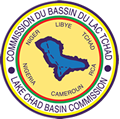The Regional Stabilization Facility (RSF) is a financing facility developed by the United Nations Development Programme (UNDP), with support from Germany, Sweden, UK, Netherlands, the European Union (EU), and the African Development Bank (AFDB) to facilitate the implementation of the (RSS of the Lake Chad Basin Region. The facility, which is being implemented in the four affected countries (Cameroon, Chad, Niger, and Nigeria), focuses specifically on four pillars of interventions under the RSS. They include:

Governance & Social Contract

Socio-economic Recovery and Environmental Sustainability

Preventing of Violent Extremism and Building Peace

Empowerment and Inclusion of Women and Youth
The RSF was launched on 18 July 2019 on the margins of the Second Lake Chad Basin Governors’ Forum in Niger. It is a multi-donor basket fund, seeking to mobilize an estimated budget of USD100m to carry out stabilization interventions in the affected territories.
The RSF has two types of components; four national windows, providing immediate stabilization (for 18 months) in the specific target areas in the four affected countries, and a regional window that is providing extended support for the implementation of the RSS.
Activities under the national windows seek to :
Support under the regional window of the RSF aim to facilitate the transition of LCBC from humanitarian assistance to longer-term development and resilience. This will be achieved by :
